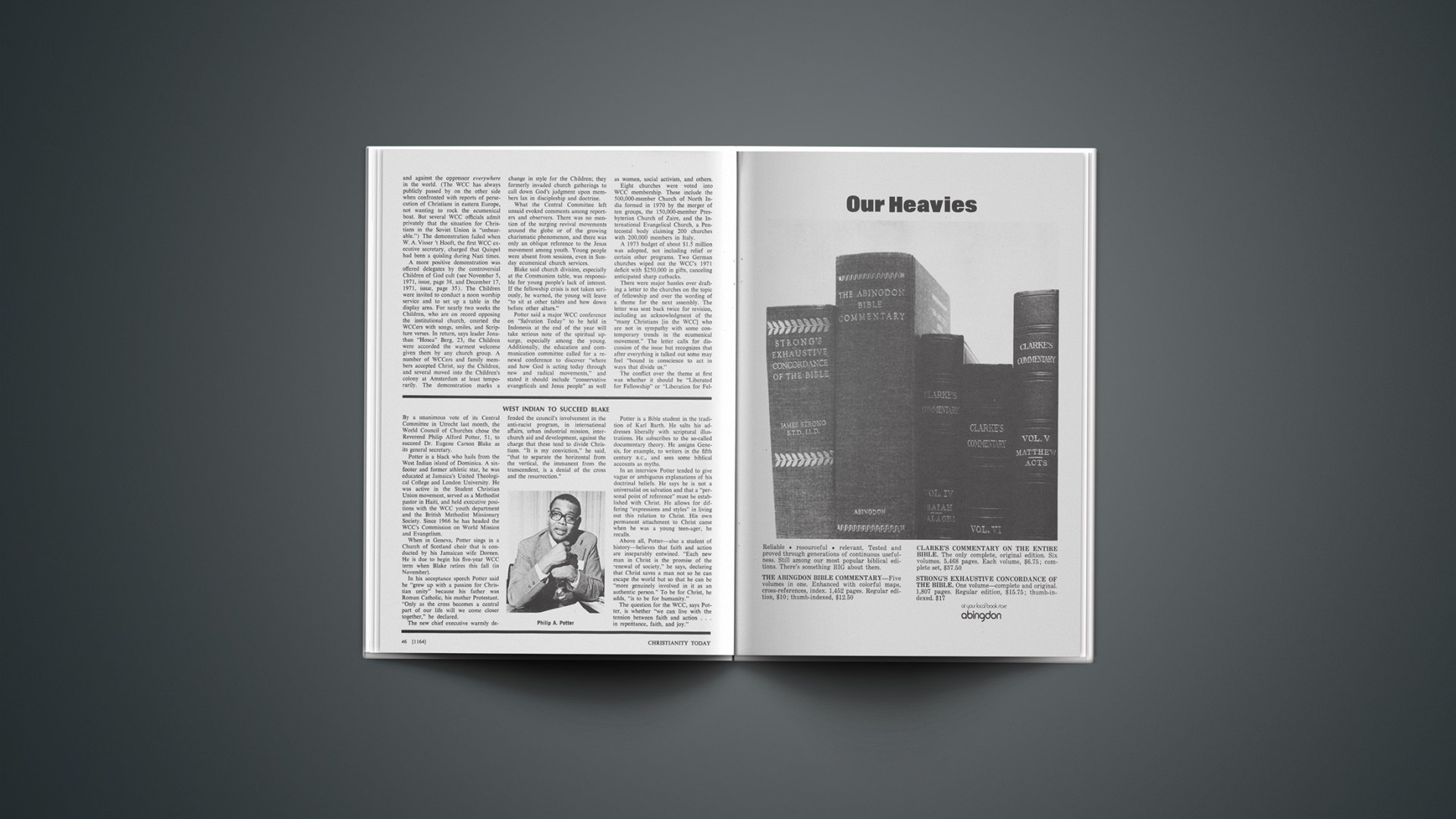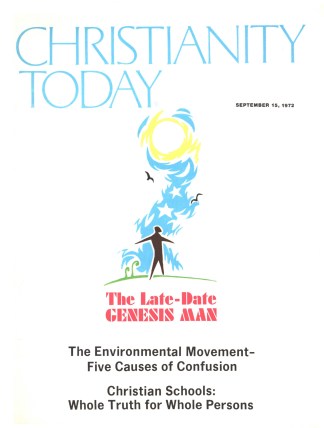Key 73—for those who may be unfamiliar with the phrase—is literary jargon for the Great Commission. But it shortens the Great Commission to deal especially with 1973 and particularly with the United States and Canada. For these nations Key 73 could be the twentieth century’s most momentous turning time.
Every American city is an evangelistic target city. Some can also become evangelical model cities in the way they mobilize their resources for moral and spiritual renewal.
I am involved for two reasons. First, I am a Christian saved by Jesus Christ, and persuaded that those who are spiritually lost have a right to hear the good news of redemption and that we Christians have a duty to share it.
Second, five years ago I asked editorial colleagues at CHRISTIANITY TODAY to shape an editorial plea to the evangelical believers of America. It was entitled, “Somehow, Let’s Get Together,” and its message was simple: if we are believers who expect to be together in heaven to come, let’s get together down here—whatever may divide us—and help our neighbors find new life and new hope now and forever.
The winds of evangelical desire were blowing, and the editorial caught fire. Hundreds of readers wrote. Scores of leaders met with me once, twice, three times in a motel at Key Bridge on the Potomac. Now 130 denominations and Christian agencies have set 1973 as the year of cooperative evangelism across the United States and Canada.
When CHRISTIANITY TODAY wrote of “evangelical get-together,” much more was intended than cooperative evangelism; educational concern and social concern, on a biblical base for biblical ends, were also in view. Some people may forget that emphasis on a biblical base and biblical ends, and try to exploit Key 73 for ends of their own. There are confused ecclesiastics who think evangelism is politics, just as there are confused Christian educators who think a campus is Christian as long as classroom prayer is offered, even if modern theory crowds out the Scriptures in various disciplines of learning. That is probably why those who rallied to Key 73 decided to keep the proclamation of the evangel at the center of this first nationwide effort.
Nobody should be uncertain about the evangel: there is forgiveness of sin and new life through Jesus Christ the crucified and risen one. If that is true—and I unwaveringly believe it is—the holy will of God for man will not only turn individuals right side up: it will turn educational institutions truth side up, and it will turn social relationships just side up, if only men will give God his due.
The first step in shaping an evangelical strategy is to remember that we have no resources whatever for engineering the Kingdom of God, nor are our utopias his utopias. We are to seek first the Kingdom of God and his righteousness, not a technocratic society, or Walden II, or even a reclamation of the American dream, which has now become a nightmare. There is but one way to blast open an obdurate social consciousness, and that is to permeate it with the Holy Spirit. Unless our planning has prayer and power as prerequisites, we shall have a Tinkertoy program, and Key 73 will give way to Stone Wall 74.
Get a prayer meeting and home Bible study going now, where believers get to know one another and their fellow townspeople across realty lines, across racial lines, across social and cultural lines, across economic lines—until Christ the Great Lineleaper erases all differences in men except that between redeemed and impoverished.
Beyond that, that problem of strategy has only two prongs, as I see it; identifying the needy and directing our resources at helping them. Our problem is no longer the apostolic divide between Jew and Gentile, no longer the Reformation divide between Catholic and Protestant; whatever their labels, the vast masses today are in the main simply pagan about spiritual matters. The problem of distinguishing recruits from recipients, the regenerate from the remainder, should not be very difficult, although God alone discerns them infallibly. The test of our Christian commitment is whether we really love those who are given over to other life-styles and who are strangers to the love of God in Christ—whether we love them both for themselves and for what they are as fellow human beings bearing God’s image, whether we love them also for the sake of Christ, who offers authentic life and hope.
Each of us has special gifts to exercise spiritual outreach. The apostles chose as deacons those who had the gifts to do the job; let every Bible-believing church suggest its ablest men and women, and let no believer escape with the ruse that he or she is vocationally good for nothing to the cause of Christ.
In 1947 I asked the Pasadena (California) Christian Business Men’s Committee why the whole nation could be attracted to football games in the Rose Bowl and yet that huge stadium had no Easter Sunday witness to the resurrection of Jesus Christ. Those twenty men asked Bob Pierce, then a Youth for Christ leader, to put on an Easter Sunrise service. It went $10,000 in the red. Few people (myself included) knew then that Bob mortgaged his home to pay the debt. Next year the CBMC decided they could not subcontract their Christian duty. They organized into committees according to their own talents and enlisted others to form a strong, active band of leaders. NBC gave free radio time from Alaska to Mexico. Easter 1973 will mark the twenty-fifth Rose Bowl sunrise service.
Clergy must enlist qualified laymen and support them in every way. Each of us must feel a burden for his own peer group. If we invest every point of contact for a touching of eternity, the glory of God could shine resplendent through the populace of North America.
If Key 73 becomes only an occasion for all the ministers and churches to do their own thing simultaneously, it will walk on crutches. The vision of Key 73 was that Christians also cooperate in doing whatever they can do to the outermost limits of a good conscience. Perhaps all can cooperate in some ways, some only in certain others; and in some forms of witness, some may stand alone. But a good conscience in the fulfillment of Key 73 may well mean Open Doorway 74 for evangelical Christianity in America.










